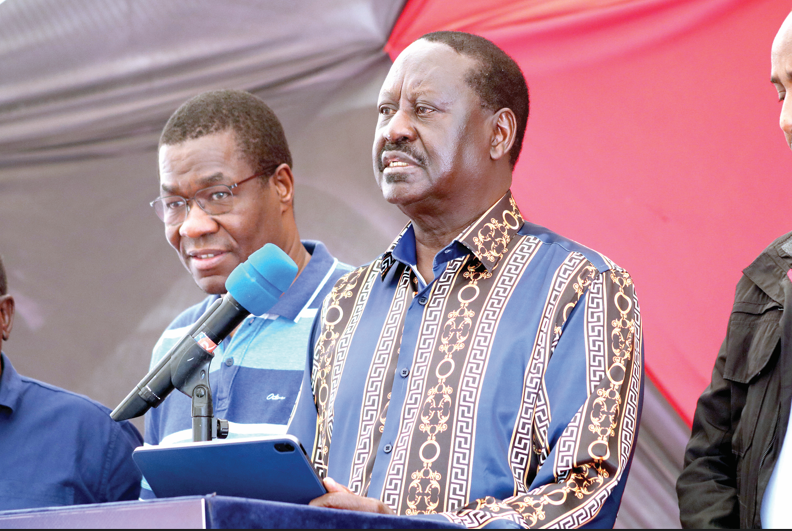Danger of weak Opposition and inactive civil society
By Raphael Obonyo, November 30, 2022For the first time since Kenya embraced multiparty politics in the early 90s, the government is receiving the least checks from the Opposition and civil society, which are seriously weakened.
While the government has been loud on rhetoric on the need to have a strong opposition, it has openly stifled it by openly luring its leaders to its side.
The ruling party must not suppress dissent from the opposition, civil society and human rights defenders.
Our democracy has flourished well since the opposition parties functioned effectively and were recognised as a legitimate and important part of governance, acquiring institutional form and support.
We owe a debt we can never repay to many people who sacrificed to ensure we enjoy rights and freedoms.
In a democracy, the opposition is supposed to serve as a government in waiting, checking government excesses – raising questions about government policies, offering choices and alternatives and criticising the government over its failures.
Criticising the government is not lack of patriotism. Opposition helps people to protect themselves against injustices and abuse of power.
Soon after being sworn into office, President William Ruto promised to allow the opposition to thrive and oversight the government. Many people expect the current leaders to take our democratisation process forward by allowing freedom of expression.
The Constitution recognises and clearly stipulates the role, powers and responsibilities of the opposition in our democratic politics.
This recognition reflects the principle of political pluralism – that power should not be monopolised by one party – and shows a commitment to democratic dialogue and hearing the other side in decision-making.
Alongside the opposition is a strong civil society that has an equally important role to play in a democracy. But the most critical thing that lacks in our political system today is a strong civil society. Since the late 80s, civil society has been a critical cog in our democracy.
Civil society was the engine for the making of the 2010 Constitution. Whereas politicians played a critical role in mobilising people for the cause, civil society provided the much-needed voice of reason.
Civil society luminaries that gave Kenyan politics hygiene have lost steam or are in government and there was a serious transition gap to the younger generation that they had groomed. We have left politics to politicians alone to the detriment of the welfare of Kenyans.
The trade union movement no longer takes part in serious politics or has become partisan. The church, which has provided sanctuary to dissenters has become too partisan.
Civil society was very critical in offering civic education during the constitution-making process. Following the Kanu rule’s end, many NGOs closed shop for strange reasons. They also lost the attention of donors and the few that remain are so ineffective to mobilise to sway the government in any decision-making.
Civil society must step up its game and bring back the vibrancy that can give the country a constructive political debate.
The proposed mass actions by Raila Odinga may not be effective unless there is a voice of reason in it. As Kofi Annan once remarked: “A strong civil society promotes responsible citizenship and makes democratic forms of government work, a weak civil society supports the authoritarian rule, which keeps the society weak.”
We need a strong opposition and civil society to keep the government of the day in check, to tackle corruption and bad governance and avoid any excesses of the administration.
—The writer is a public policy analyst
—raphojuma@hotmail.com
